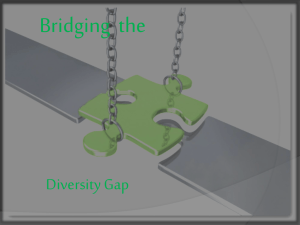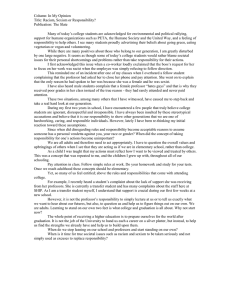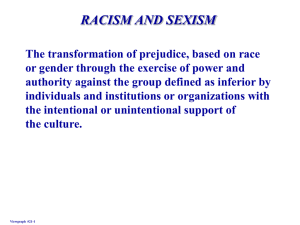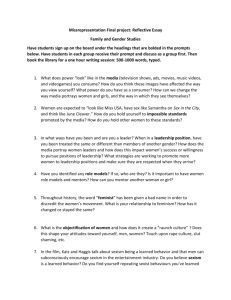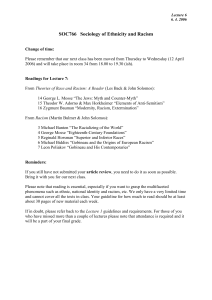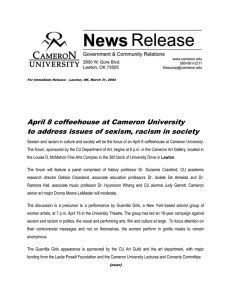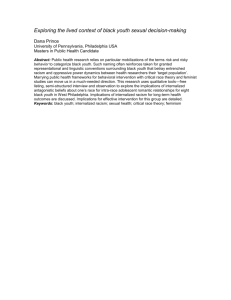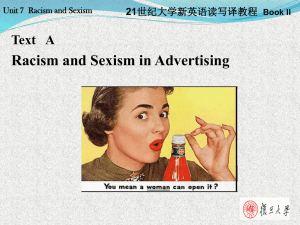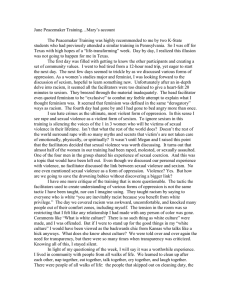Richard Wasserstrom – “Racism, Sexism, and
advertisement
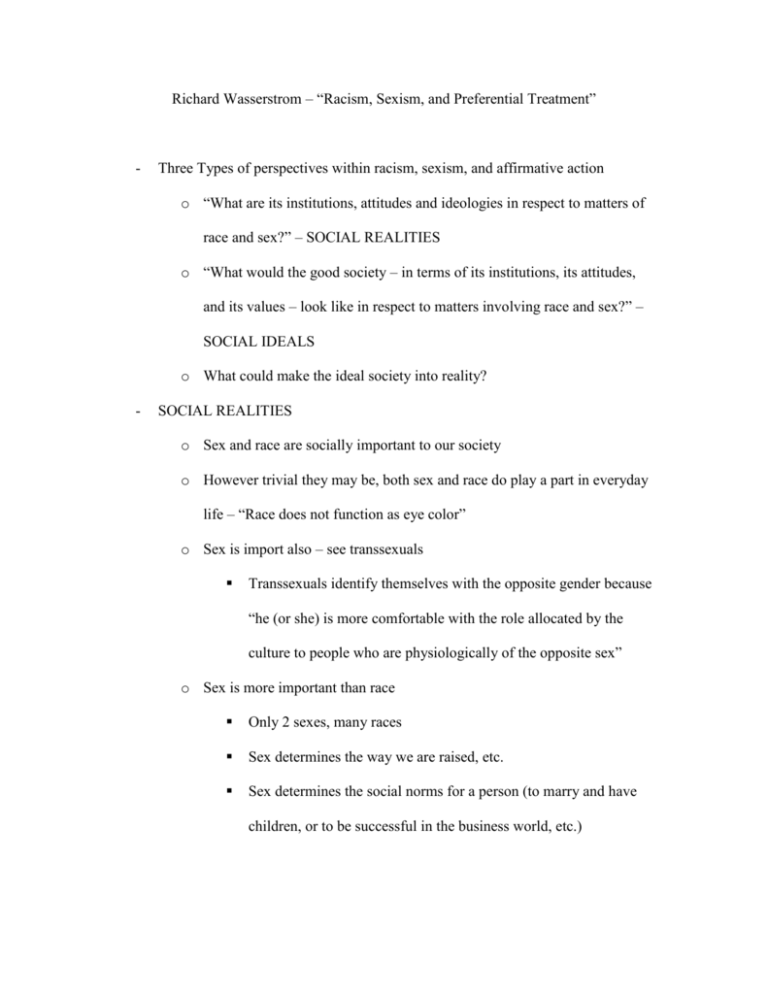
Richard Wasserstrom – “Racism, Sexism, and Preferential Treatment” - Three Types of perspectives within racism, sexism, and affirmative action o “What are its institutions, attitudes and ideologies in respect to matters of race and sex?” – SOCIAL REALITIES o “What would the good society – in terms of its institutions, its attitudes, and its values – look like in respect to matters involving race and sex?” – SOCIAL IDEALS o What could make the ideal society into reality? - SOCIAL REALITIES o Sex and race are socially important to our society o However trivial they may be, both sex and race do play a part in everyday life – “Race does not function as eye color” o Sex is import also – see transsexuals Transsexuals identify themselves with the opposite gender because “he (or she) is more comfortable with the role allocated by the culture to people who are physiologically of the opposite sex” o Sex is more important than race Only 2 sexes, many races Sex determines the way we are raised, etc. Sex determines the social norms for a person (to marry and have children, or to be successful in the business world, etc.) Women are idealized and at the same time regarded as less competent Sexism is harder to identify than racism at times – i.e. bathrooms o TYPES OF RACISM/SEXISM Overt – obvious – i.e. law, segregation, etc. Covert – not so obvious – i.e. school segregation on “location” etc. Intuitional racism Type 1 – dividing schools by racial locations Type 2 – “conceptual” – i.e. separate but equal o Brown v. Board, didn’t immediately integrate, rather waited until poor black schools were made acceptable to whites - SOCIAL IDEALS o A non-racist/sexist society would be one in which race and sex are viewed just as eye color is today I.e. “no basic political rights and obligations are determined on the basis of eye color. No important institutional benefits are connected with eye color.” I have blue eyes, but I feel more like a brown-eyed person… Would force the abolition of laws such as those keeping gays from marriage, for sex would not be important Ideals of masculinity and femininity would disappear o Diversity and tolerance (keep things interesting while still accepting all)
